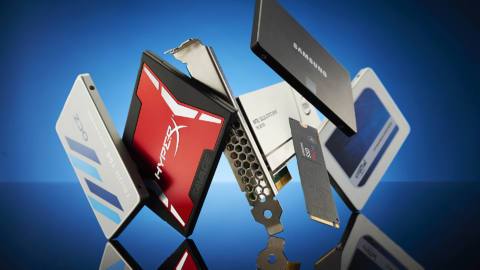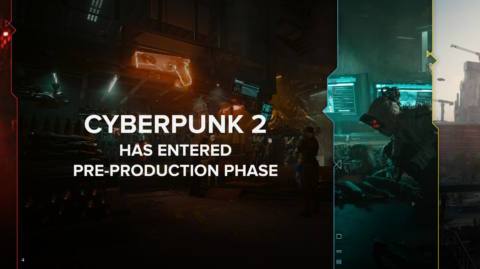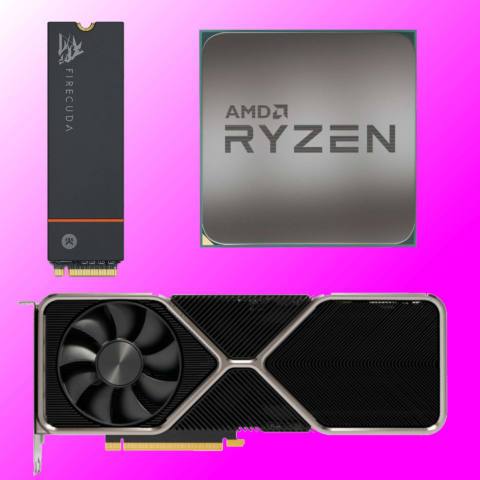Last year was the perfect time to buy an SSD. For less than $100, you could get a couple of terabytes of really fast storage, even from the top brands. That's not the case now and you have to shop around to find a good deal, and the reason for this is simple: Samsung, the largest supplier of flash memory, has reduced production to such an extent that its factories are churning out 50% fewer chips than in the previous year.
News of this move (via ComputerBase) isn't particularly surprising as the industry had been talking about reducing output for a good while. However, the sheer size of the decrease is quite alarming and it's only going to mean that SSD prices will continue to rise, as the inventory of flash memory chips begins to dwindle.
This is because it's not just Samsung that's scaling back production: Other NAND manufacturers, such as Kioxia, Micron, and SK Hynix, will almost certainly follow suit. By constraining supply, the high demand will force prices to rise, though this is something that's been going on in the flash memory industry for years.
And more recently, the growth in AI supercomputers is also partly responsible for the increase in SSD prices, as the creation of all these machines for generative AI requires thousands of medium-capacity, high-speed flash memory chips. The general server market still prefers the traditional HDD as the primary choice of long-term storage, though SSDs are making headway in this area, too.
However, it's not necessarily all doom and gloom. Some suppliers may choose to not follow Samsung's lead and instead do the polar opposite. Chinese manufacturers such as YMTC, whose memory chips are used by Silicon Power, ADATA, and countless others, may see this as an opportunity to flood the market with mountains of cheap NAND flash.

Best SSD for gaming: The best speedy storage today.
Best NVMe SSD: Compact M.2 drives.
Best external hard drives: Huge capacities for less.
Best external SSDs: Plug-in storage upgrades.
One might think that since many of the best solid-state drives are created by the chip manufacturers themselves (e.g. Samsung, Western Digital, Crucial), it will only be the lesser-known brands that will snap them up.
But there are some excellent SSDs out there, such as the Lexar NM790, which use YMTC chips and they're just as fast as anything from Samsung, and all without the high price tag.
So while we can expect SSD prices to continue to rise throughout 2024, I'd be very surprised if there wasn't a push from competitors in the NAND flash market to make a bid for your wallet with some tasty deals. As always, we'll let you know if we spot anything worth your hard-earned cash.






